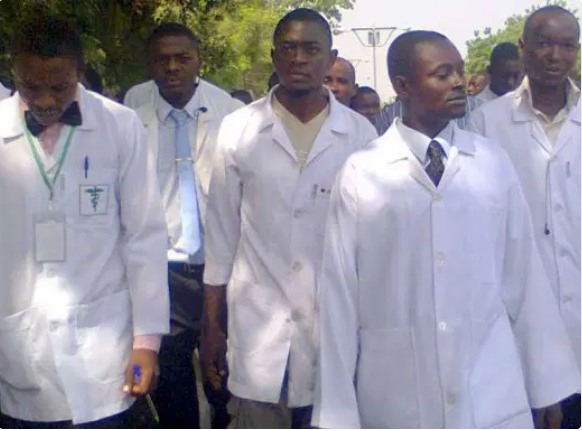Medical activities have been completely paralysed at the Federal University of Lafia Teaching Hospital (FUTH) following the nationwide strike declared by the National Association of Resident Doctors (NARD). When reporters visited the facility, wards were deserted as all patients on admission had been evacuated. Health workers across key departments — including the emergency, outpatient, and antenatal units — had also abandoned their duty posts. The industrial action, which began last Saturday, is already taking a heavy toll on citizens who rely on the hospital for essential healthcare services.
During a monitoring exercise to ensure full compliance with the strike directive, NARD State President, Dr. Jude Yepowudu, led members of the association on an inspection tour of the hospital’s major sections. Speaking after the tour, Dr. Yepowudu decried the deteriorating working conditions of health professionals, particularly resident doctors in public health institutions. He accused the government of neglecting their welfare and failing to address long-standing grievances. “Resident doctors form the backbone of Nigeria’s medical workforce, yet we continue to face neglect. Many of us can’t even afford to fuel our cars or pay rent. This strike is our last resort to demand fair treatment,” he said.
Some patients who spoke with Vanguard expressed deep frustration over the situation, describing their experience as disheartening. Mrs. Grace Peter and Hajiya Larai Abdullahi, who had come for antenatal care, lamented being turned back without receiving any attention. “We came for antenatal services but were told to go home because doctors are on strike. We couldn’t even do our ultrasound scan. The government should quickly meet the doctors’ demands so they can return to work,” they appealed.
As the strike drags on, anxiety continues to mount among patients and their relatives, particularly those in need of urgent or critical care. Meanwhile, private hospitals across Lafia, the Nasarawa State capital, are witnessing a surge in patient admissions as residents seek alternative medical attention, further straining the city’s limited healthcare resources.

